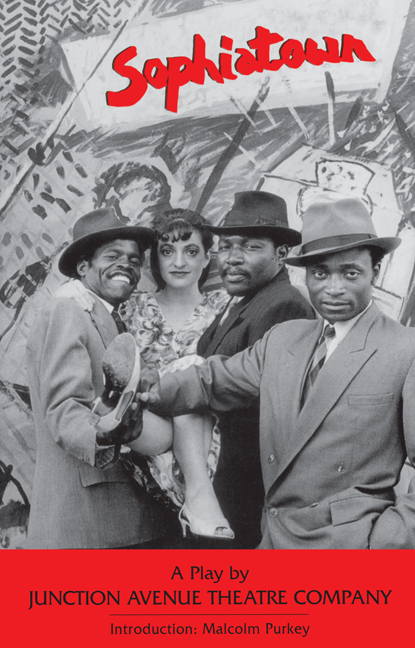‘Sophiatown’ - The Play
Published online by Cambridge University Press: 04 June 2019
Summary
An obsession to reclaim and popularize the hidden history of struggle in our country is part of Junction Avenue Theatre Company's self-appointed task. This history has been wiped off the map by the State in its oppression of the majority of South Africans. The powerful flourishing of the contemporary theatre in South Africa, against all the odds, indicates the hunger that all South Africans have, to have their world interpreted. We need an informed and articulate new generation, steeped in the past and carefully theorizing about the future, who have shaken off the blanket of silence and are committed in the deepest way to liberation. We believe that one of the most effective ways to communicate ideas, information and feelings is through the living theatrical encounter.
When Junction Avenue Theatre Company first started in 1976, it was a group of white students, based at the University of the Witwatersrand. In this, it reflected the nature of the university at the time. Our first project, ‘The Fantastical History of a Useless Man’ leapt through history from 1652 to 1976, trying to evaluate the possible role of white, English; speaking South Africans in the context of the ‘76 Soweto uprisings. After this first project, it became very clear that a group of only white members was entirely unsatisfactory: if we were to begin to reflect the true nature of the conflicts around us, we had to become a non-racial group. Fortunately, in the theatre company Workshop ’71, manifestly committed to the creation of original, progressive South African theatre, we found a powerful and challenging model. In its organization and approach to the creation of new plays, it was a working model of non-racial democracy. In 1976, when Workshop ‘71 dissolved, with many of its members in exile, some of its key members joined Junction Avenue Theatre Company. This gave the company the core of its current composition.
With this newly constituted group, the company explored the relationship between labour and liquor on the goldmines at INTRODUCTION the turn of the century in ‘Randlords and Rotgut’ (1978), based on an article of the same name by Charles van Onselen.
- Type
- Chapter
- Information
- SophiatownA PLAY CREATED BY JUNCTION AVENUE THEATRE COMPANY, pp. xi - xvPublisher: Wits University PressPrint publication year: 1993



